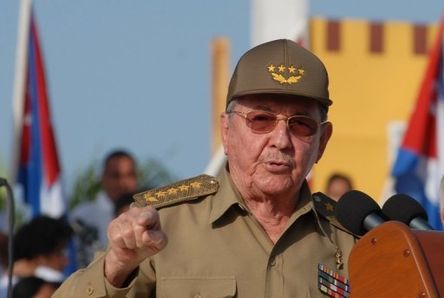
Cuba has announced it is removing the need for its citizens to obtain exit permits before travelling abroad.
State media said the move, to come into effect on 14 January next year, would “update” migration laws to reflect current and future circumstances.
Cubans currently have to go through a lengthy and expensive process to obtain a permit and dissidents are often denied one, correspondents say.
The move is the latest in a series of reforms under President Raul Castro.
Cubans who have permanent residency on the island will also be allowed to stay abroad for up to 24 months, instead of the current 11, without having to return to renew paperwork.
The exit permit process is hated by most Cubans so this reform, which was much anticipated, will be widely welcomed.
Cuba previously saw people attempting to leave the country as traitors or enemies of the revolution, says our correspondent, but official recognition is growing that many Cubans want to leave for economic reasons and that the country can benefit from the cash and knowledge they bring back with them.
Now all that Cubans will need to leave is a valid passport and a visa.
However, the new law still argues for the need to protect Cuba’s “human capital”, so highly-qualified professionals like doctors, will continue to face extra hurdles to travel.
Government critics are also likely to experience further difficulties, as passport updates can be denied for “reasons of public interest defined by the authorities”.
The restrictions have failed to prevent hundreds of thousands of Cubans emigrating illegally in the past few decades, many of them to the US where they have formed a strongly anti-Havana diaspora.
The US grants automatic residency to anyone who reaches it from Cuba.
For nearly half a century, Cuba was run as a command economy, with almost all activity controlled by the state.
But under President Raul Castro, who took over from his ailing brother Fidel in 2008, it has gradually eased restrictions in many areas of politics, business and society.
The latest reform comes on the 50th anniversary of the Cuban missile crisis, the closest the world has ever come to nuclear war as the US and the Soviet Union nearly went to war over Soviet missiles placed on the island.
But the crisis was resolved diplomatically when the Soviets agreed to remove the missiles in exchange for a US promise not to invade Cuba.
However the relationship between Cuba and the US remains hostile – they have no diplomatic relations and an American economic blockade of the era is still in effect.
Cuba has struggled economically since the collapse of the Soviet Union and now relies heavily on the support of the left-wing government of Venezuela.